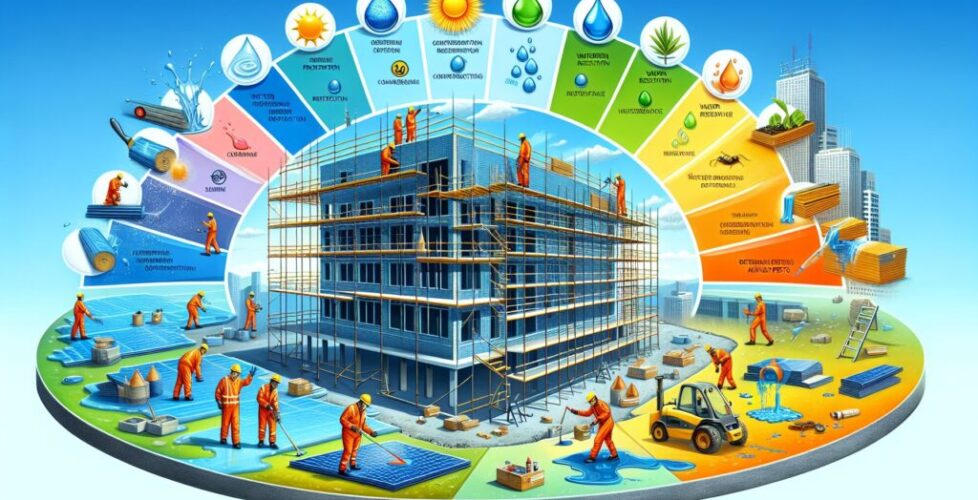The Many Benefits of Construction Coatings
Construction coatings are an essential component of any building project, providing numerous benefits that go beyond aesthetic appeal. From protecting structures against corrosion and water damage to increasing energy efficiency and prolonging the lifespan of materials, coatings play a crucial role in the construction industry. Whether you are a coating enthusiast or simply interested in learning more about this topic, this article will provide you with a comprehensive overview of construction coatings and their wide-ranging advantages.
Understanding Construction Coatings
Before delving into the benefits of construction coatings, it is important to understand what they are and how they work. A construction coating is a specially formulated material that is applied to various surfaces, such as metal, concrete, or wood, to provide protection and enhance their performance. These coatings typically contain additives that improve their strength, adhesion, and resistance to UV radiation, moisture, chemicals, and other environmental factors.
Protection Against Corrosion and Water Damage
One of the primary functions of construction coatings is to protect structures from corrosion and water damage. Metal components, such as steel beams or reinforcement bars, are particularly vulnerable to corrosion, which can weaken the overall structure and pose safety risks. Coatings act as a barrier that prevents water and corrosive substances from reaching the metal surface, thereby extending its lifespan and reducing maintenance costs.
Similarly, construction coatings provide an effective shield against water damage. When applied to concrete surfaces, these coatings make them less permeable to water, thus reducing the risk of cracking, spalling, or other forms of deterioration. By protecting the structural integrity of the building, coatings contribute to its long-term durability.
Enhanced Energy Efficiency
Coatings are not only beneficial for protecting structures; they also play a significant role in improving energy efficiency. Cool roof coatings, for example, are specially designed to reflect sunlight and reduce heat absorption, subsequently reducing the need for air conditioning and lowering energy consumption. By keeping the building cooler, these coatings contribute to a more comfortable indoor environment while also reducing greenhouse gas emissions.
Moreover, coatings can be used to enhance insulation properties, especially when applied to walls or roofs. Thermal insulating coatings contain special additives that help reduce heat transfer, keeping the interior spaces warm during cold weather and cool during hot weather. This helps reduce the reliance on heating or cooling systems, leading to both energy savings and a smaller environmental footprint.
Prolonged Lifespan and Reduced Maintenance
When construction coatings are properly applied and maintained, they can significantly extend the lifespan of various materials. By providing an additional protective layer, coatings minimize the impact of weathering, chemical exposure, and physical stressors. Consequently, the building requires less frequent repairs and replacements, resulting in substantial cost savings in the long run.
Furthermore, the application of coatings can simplify maintenance tasks. Coated surfaces are often easier to clean and resistant to the accumulation of dirt, dust, and other pollutants. This not only reduces the time and effort spent on cleaning but also promotes a healthier living or working environment by limiting the presence of allergens or harmful substances.
Conclusion
Construction coatings are more than just a decorative element. From protecting against corrosion and water damage to enhancing energy efficiency and extending the lifespan of materials, coatings offer a wide range of advantages in the construction industry. By incorporating quality coatings into building projects, contractors can ensure both structural integrity and long-term cost-effectiveness. As the importance of sustainability and durability continues to grow, the role of construction coatings is likely to become increasingly prominent in shaping the future of construction.

